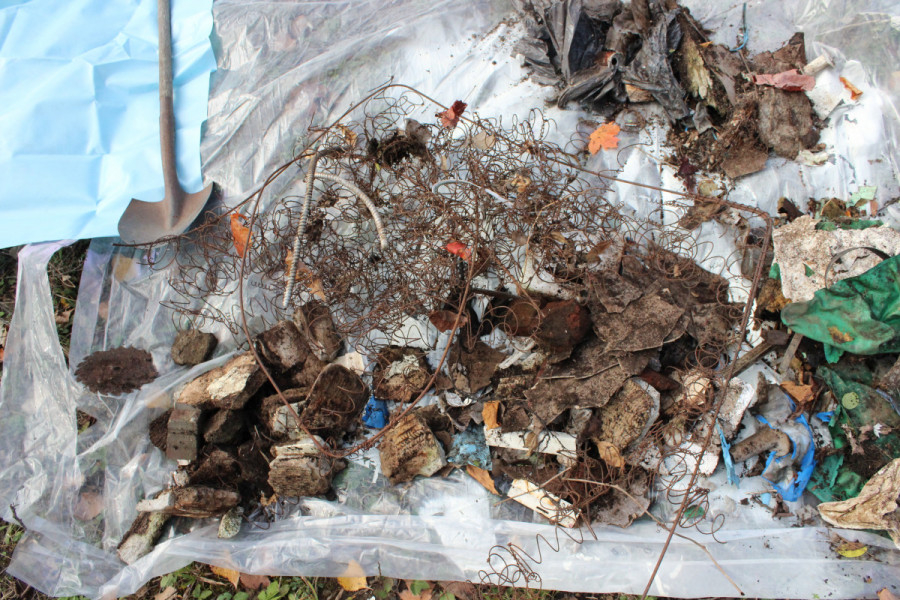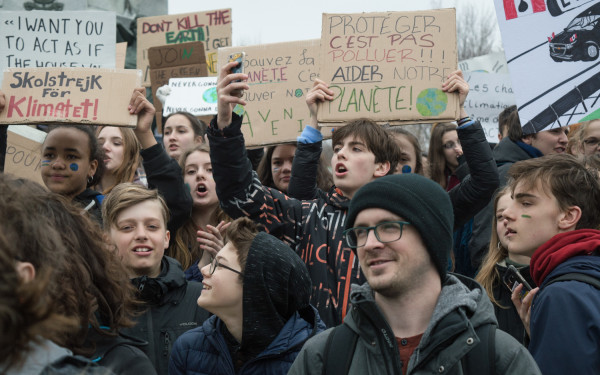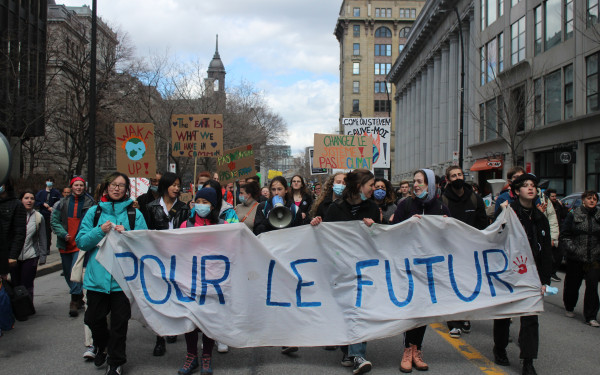Project Phoenix to give Angell Woods back its wings
Student-led environmental groups make tangible change
In years past, Beaconsfield’s Angell Woods was used as an unofficial garbage dump. Now a popular outdoors space with layers of garbage underneath, students and community members came together to clean it up on Oct. 24—not just in the hopes of making a tangible difference, but as part of a broader restoration project.
TrashTalk Montreal, a community-based group for action against pollution, has been cleaning up Angell Woods for the past two years. In this time, they collected approximately 25,000 pounds of garbage, according to CEO Nicolas Vyncke. About a year ago, they partnered with Sustainable Youth Canada—a student-led non-profit that promotes sustainability—to bring a scientific aspect to their work. This collaboration spurred Project Phoenix, a larger-scale initiative to restore Angell Woods that involves clean-ups, research, and advocacy. The young activists also plan to hold a fashion show and art exhibit made out of the material collected in March.

As a part of Project Phoenix, the two groups meet monthly to clean 10 m by 10 m sections of the forest. Tens of volunteers spend a few hours digging out hidden trash, finding anything from roofing material, entire garbage bags, and glass, to plastic toys, wires, and old batteries. The teams sort the findings by category and weigh them to get an understanding of just how much has been dumped in this location.
After a bulk of the trash is removed, the volunteers collect soil samples. These samples are then sent to a lab for testing and provide necessary data for a report about how the garbage affects the ecosystem of the park. The report will be brought to the municipality in hopes of inciting a more extensive clean-up of Angell Woods, which is slated to become a national park.
“It’s very personal to me, specifically this forest, because I’ve been coming here since I was seven, eight years old,” said Vyncke.

In addition to the tangible work of trash clean-ups, he explained that education is a key way to make change when it comes to pollution. Despite how much time he spent at Angell Woods as a community member, Vyncke said it was only in the past two years that he realized just “how trashy it was.”
Susan Ly is an environmental and sustainable science student at Concordia. She joined Project Phoenix as a scientist, where she is responsible for collecting soil samples and helping with research. She explained that she was happy to join the project when approached by Shir Gruber, a friend from CEGEP and co-director of SYC. “I wanted to get involved in opportunities that are sustainably related because it’s a field that I'm interested in,” said Ly.

As for how other Concordia students can also join in environmental efforts, Ly recommends reaching out to the Office of Sustainability. “They have really cool opportunities to volunteer, [...] and they give a lot of advice on how to be better,” she said.
Gruber further explained that the best way to start advocating for a better future is by finding a community to work with. “You want to assess what’s already happening and see how you can contribute, and then if you notice gaps, that’s a great opportunity to step in and create something,” she said.
Gruber also encourages interested students to reach out to SYC no matter their area of expertise. “Whatever your skills are, there will be a place for you in the environmental movement because it’s not a silver bullet issue—we need several solutions.”


_600_832_s.png)




